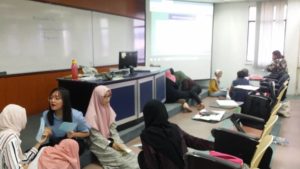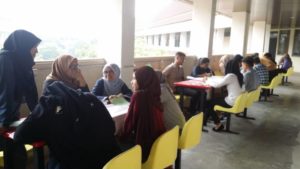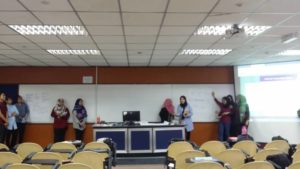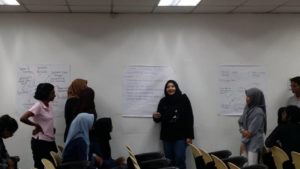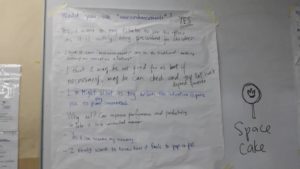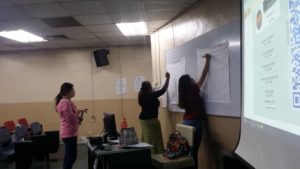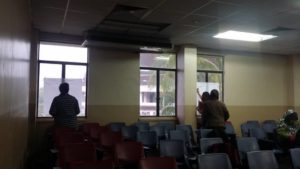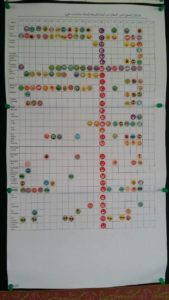I had a tuition class with the students. Some of them are sad because of their trial results. So, to cheer them up, I asked them to look at their exercise book where they wrote their targeted marks for SPM trial. I told them before if they can get the marks that they set in their trial, I will give them RM100. When I made the offer, I was prepared to spend RM600. Of course, they don’t believe it. After all, it is very rare for them to get such offer. But I am not their typical teacher.
Each of them was hesitated to let me know about their marks. Alhamdulillah, I came well-prepared. I looked at my handphone and searched the marks Ita gave me. So, I read their marks one by one (well, they already know each other marks when Ita discussed their paper a week ago). While reading their marks out loud, I checked their exercise book to see their targeted marks. Ainsyah is the only one who able to reach the target. She has improved a bit (well, from D to C is a good-enough improvement for her). Let’s be realistic. They know it is quite impossible for them to get a solid A (above 80%). I don’t want to put unnecessary pressure on them by suggesting they should aim that high. I told them to renew their target for the real SPM. But I don’t let them know about the monetary reward that I will give if they can achieve their targeted grade for SPM.
Why do I give them monetary reward? All of them come from B40 family. I want to help them to prepare for SPM by having their own money to buy stationery, revision book or other things. So, that’s why I gave them the RM100 reward. I don’t know how I can assist them since I am no longer at school. Last year, when I was at school, Ita and I bought stationery supply to give to all of the SPM candidates. I am planning to do the same this year in sha Allah.
The monetary reward that I plan to give them for their SPM is also to assist them to buy UPU form (yup, they have to buy the code at any post office). Even though they no longer have to fill in the UPU paper-version form like I did back in 1996, they have to buy a password/code to get accessed to UPU online. The UPU form that I had to pay back in 1996 cost me RM100 per form. That’s quite a lot back then (and now). At that time, I worked at MPH Bookstore with RM450 per month (or more if I did lots of over time or OT).
When I just started my Latihan Ikhtisas, the SPM results were announced at the end of March 2018. I still remember Cikgu Mun, the school counselor used her own money to buy the code for some students who did not want to apply to any matriculation centre or Asasi via UPU because they didn’t have the money. Their parents could not afford to buy it. It breaks my heart. I don’t want the students to stop from furthering their studies to higher level feel hesitated due to financial constraint. So, by rewarding them with monetary reward, I hope that at least I can help them in certain way. As a teacher, it is difficult to ignore such predicament that your students are experiencing. After all, it is not their fault to be in that situation.
